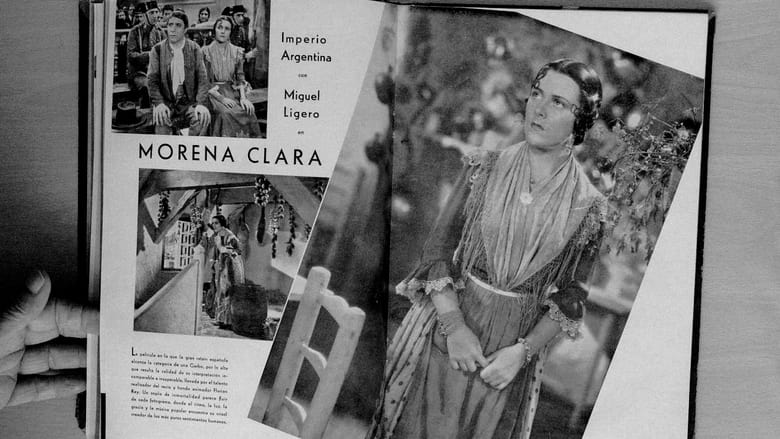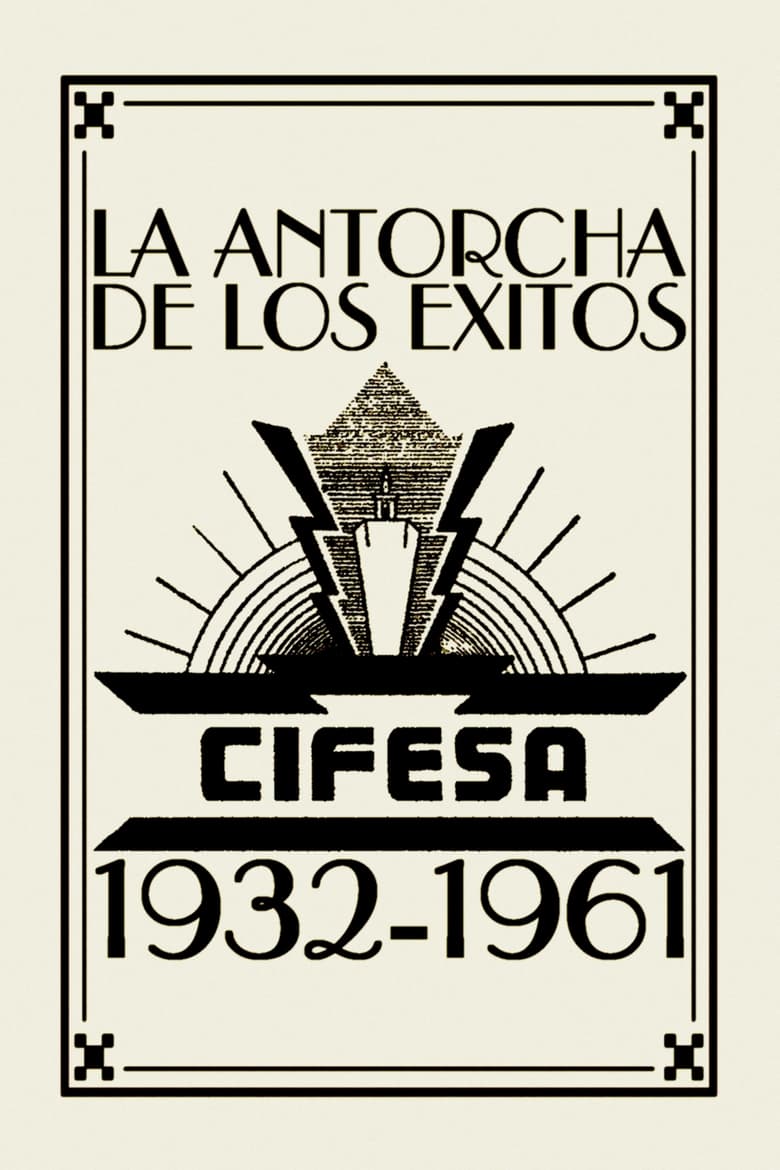

La Antorcha de los Éxitos: Cifesa (1932-1961)
Genres
Overview
The amazing story of Cifesa, a mythical film production company founded in Valencia by the Casanova family that managed to dominate the box office during the turbulent times of the Second Spanish Republic, the carnage of the Civil War and the hardships of the long post-war period and Franco's dictatorship — and survive until the sixties, when Spain was timidly beginning to change.
Details
Budget
$0
Revenue
$0
Runtime
94 min
Release Date
2022-10-05
Status
Released
Original Language
Spanish
Vote Count
2
Vote Average
4
Antonio Esquivias
Self - Narrator (voice)
Emeterio Díez Puertas
Self - Film Historian
Luis Casanova Iranzo
Self - V. Casanova's Nephew
José Luis Castro de Paz
Self - Film Scholar
Virginia Guarinos
Self - Film Scholar
Jaime Hernández de la Torre
Self - Painter
Alfonso Gil
Self - Historian
Luis Fernández Gimeno
Self - Fallero
Vicente Sánchez Biosca
Self - Film Scholar
Fátima Gil Gascón
Self - Scholar
Pablo León Aguinaga
Self - Historian
Fernando Fernández de Córdoba
Self - Actor (voice) (archive footage)
Gonzalo Queipo de Llano
Self - Spanish Military (archive footage)
Francisco Franco
Self - Politician (archive footage)
Rafael Gil
Self - Filmmaker (archive footage)
Carmen Polo
Self - Franco's Wife (archive footage)
Cesáreo González
Self - Film Producer (archive footage)
Luis Lucia
Self - Filmmaker (archive footage)
Juan de Orduña
Self - Filmmaker (archive footage)
Luis Carrero Blanco
Self - Politician (archive footage)
Vicente Casanova
Self - Film Producer (archive footage)
Sara Montiel
Self - Actress (archive footage)
Manuel Fraga
Self - Politician (archive footage)
6.9
Wild Session
A walk through the golden age of Spanish exploitation cinema, from the sixties to the eighties; a low-budget cinema and great popular acceptance that exploited cinematographic fashions: westerns, horror movies, erotic comedies and thrillers about petty criminals.
2019-12-13 | es
4.0
In the Lost City
The city of Madrid as it appears in the Spanish films of the 1950s. A small tribute to all those who filmed and portrayed Madrid despite the dictatorship, censorship and the critical situation of industry and society.
2009-02-04 | es
0.0
Brand Bollywood Downunder
When most people think about Australia, they picture massive sandy beaches, singlet-clad locals drinking beer, and kangaroos bounding through the dusty red outback. Saris, musical numbers, and masala are the furthest from anyone's mind - unless of course, you're one of the millions of Bollywood fans from around the world.
2023-11-02 | en
7.2
The One, the Only, the Real Tarzan
The glorious and tragic story of American athlete and actor Johnny Weissmuller (1904-84), Olympic swimmer, water polo player and the only true Tarzan, an archetypal character and myth of cinema, that of the original Hollywood blockbusters (1932-48).
2004-08-22 | de
0.0
Return to Manila: Filipino Cinema
Documentary about the history of Philippine cinema.
2010-10-09 | en
0.0
Franco on Trial: The Spanish Nuremberg?
Franco on Trial is the new film by Dietmar Post and Lucía Palacios. After the success of Franco's Settlers, their first encounter with Franco's dictatorship, they are now setting their sights on one of the darkest chapters of European history: the presumed organized extermination that took place during the coup, the war, and the subsequent dictatorship led by Franco, as well as Argentina's current effort, by invoking the principle of universal jurisdiction, to prosecute Francoists accused of committing crimes against humanity. The film is also a sore reminder of an issue that still stands today: the clear-cut accountability held by Germany, Italy, and Portugal. The film accomplishes to give both sides a voice - those against whom the killing has been directed; and the side of the perpetrators.
2018-02-20 | en
0.0
This Is Not a Dream
The video revolution of the 1970s offered unprecedented access to the moving image for artists and performers. This Is Not a Dream explores the legacies of this revolution and its continued impact on contemporary art and performance. Charting a path across four decades of avant-garde experiment and radical escapism, This Is Not a Dream traces the influences of Andy Warhol, John Waters and Jack Smith to the perverted frontiers of YouTube and Chatroulette, taking in subverted talk shows and soap operas, streetwalker fashions and glittery magic penises along the way.
2012-10-20 | en
6.2
The Basque Ball: Skin Against Stone
An attempt to create a bridge between the different political positions that coexist, sometimes violently, in the Basque Country, in northern Spain.
2003-10-03 | es
6.3
The March on Rome
The fascinating story of the rise to power of dictator Benito Mussolini (1883-1945) in Italy in 1922 and how fascism marked the fate of the entire world in the dark years to come.
2022-10-20 | it
5.6
The Anarchist's Wife
Manuela is left behind when her husband Justo fights for his ideals against Franco's Nationalists during the Spanish Civil War. He is deported to a concentration camp, and upon his release, continues the fight against nationalism in the French resistance. Years pass without a word from him, but his wife never gives up hope of seeing him again.
2008-06-26 | es
7.0
Más allá de la alambrada: la memoria del horror
2005-11-12 | es
6.7
Counter Shot: Departure of the Filmmakers
Documentary about filmmakers of the New German Cinema who were members of the legendary Filmverlag für Autoren (Film Publishing House for Authors). Among them are Werner Herzog, Rainer Werner Fassbinder, and Wim Wenders.
2008-02-11 | de
0.0
Omnibus: François Truffaut
1973-12-02 | en
0.0
A Film in the Theatre
Eusebio José Fernández López Reboredo Bergamín is a teenager in the 1960s whose dream is to be a movie director, but General Francisco Franco prohibited in 1964 all types of art. A coincidental encounter with another artist, named Antonio Mínguez, will change his life.
2022-05-08 | en
6.0
Bones of Contention
A history of the political and social repression carried out by the ruthless regime of Spanish dictator Francisco Franco between 1936 and 1975 that focuses on the lives of gays and lesbians during those dark years and the death of the Spanish gay poet Federico García Lorca.
2018-03-02 | en
3.0
¿Por qué morir en Madrid?
1966-05-02 | es
7.1
This Film Is Not Yet Rated
Kirby Dick's provocative documentary investigates the secretive and inconsistent process by which the Motion Picture Association of America rates films, revealing the organization's underhanded efforts to control culture. Dick questions whether certain studios get preferential treatment and exposes the discrepancies in how the MPAA views sex and violence.
2006-01-26 | en
8.0
Rioja: The Land of a Thousand Wines
By telling the human stories behind the entire value chain that gives life to the Spanish wine with the greatest international projection, ‘Rioja, Land of the Thousand Wines’ portrays a currently blooming wine region underpinned by the talent and the work of the new generations of winemakers that operate side by side with the region’s historic wineries. The film puts the focus on the match between territory and product, wisdom and tradition, and lays a bridge between the origins and the future of Rioja. An immersion into a fascinating world that, through captivating cinematography and careful editing, attempts to find the keys to understanding what Rioja wine is and what makes it so special.
2023-11-10 | es
9.0
Stunts: A Taste for Risk
The amazing story of stunts, men and women who risk their lives every day on set to get the perfect action scene.
2023-11-30 | de
7.8
Indiana Jones: The Search for the Lost Golden Age
Hawaii, May 1977. After the success of Star Wars, George Lucas and Steven Spielberg meet to find a new project to work on together, the former as producer, the latter as director. The story of how the charismatic archaeologist Indiana Jones was born and how his first adventure, released in 1981, triumphed at box offices around the world.
2021-05-07 | fr